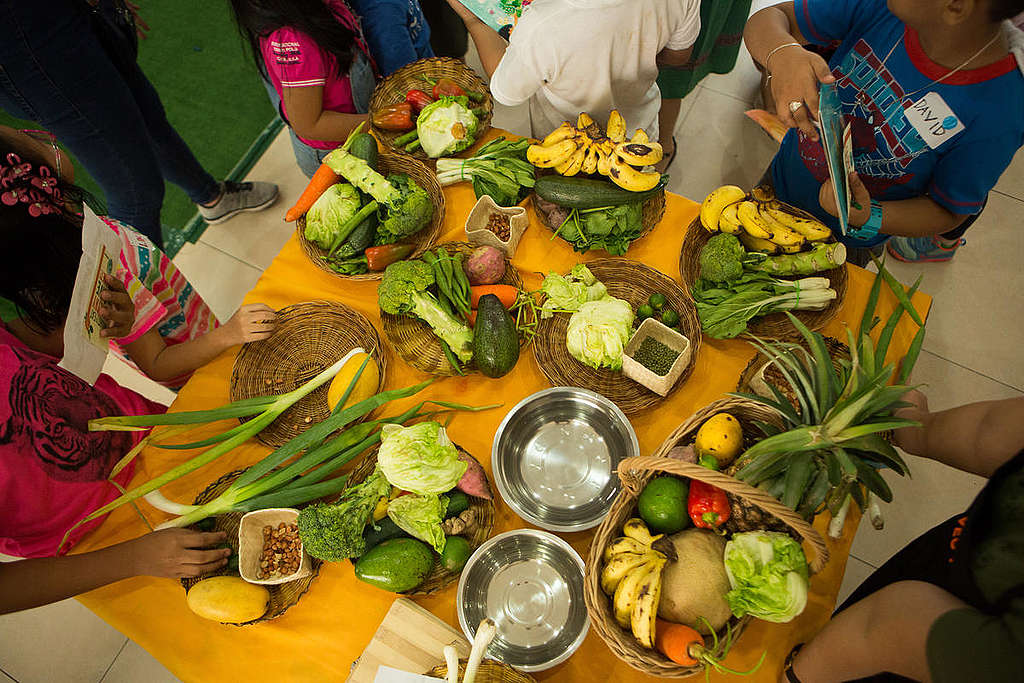Quezon City – Greenpeace today called for increased measures to better protect the country’s agriculture and farmers from the threat of infection from the African Swine Fever (ASF), which has now reached Southeast Asia, including the adoption of policies to curb the country’s high consumption of imported industrial meat.
“We commend the DA’s (Department of Agriculture) move to recall all pork products from countries affected by ASF [1] and strongly support the call of the hog industry to impose a suspension on the importation of pork and processed pork products from high-risk countries. However, the government needs to look beyond preventing entry. Being one of the largest consumers of meat, pork in particular, our country needs enabling policies and programs to veer consumption away from imported industrial meat,” said Virginia Benosa-Llorin, campaigner of Greenpeace Southeast Asia – Philippines.
During the last quarter of 2018, the DA already banned the entry [2] of pork and pork-based products from countries affected by ASF, but Greenpeace pointed out that shifting away from industrial meat is needed not only to lessen myriad risks to people’s health, but also to minimize the toll on the environment, the climate, and the livelihoods of local small farmers. Industrial livestock agriculture—raising cows, pigs and chickens in factory farms—generates as much greenhouse gas emissions as all cars, trucks and automobiles combined [3], aside from placing local small farmers at a disadvantage and open to exploitation.
“Shifting to ecological agriculture can feed the country better and create benefits for our famers and the climate, as well as ensure accessible plant-based options and a diverse diet that provides better nutrition for our citizens,” Llorin added.
The United Nations’ Food and Agriculture Organization (FAO) reports that ASF continues to spread within China, where more than one million pigs have been culled in an effort to halt the contagion that continues to spread, now affecting neighboring countries Vietnam, Mongolia and Cambodia. [4]
Prevention of ASF depends largely on stringent import policies to ensure that neither infected live pigs nor pork products are introduced into areas still free of ASF, including feeding infected meat to susceptible pigs.
“We urge the government to increase its level of support for farmers to shift towards ecological methods of growing food and raising an amount of livestock that the planet can sustain, so that people have better access to healthy, plant-based food,” Llorin said.
——–
Notes to Editors:
[1] http://cnnphilippines.com/news/2019/5/27/DA-recall-Ma-Ling-Pork-products-African-Swine-Fever.html
[2] https://www.rappler.com/nation/220019-philippines-ban-pork-from-8-countries-african-swine-fever
[3] More information on the impacts of industrial meat production: https://www.greenpeace.org/international/publication/15093/less-is-more/
[4] http://www.fao.org/3/CA4526EN/CA4526EN.pdf
Media Contacts:
Virginia Benosa-Llorin
Campaigner, Greenpeace Southeast Asia – Philippines, +639985826617, [email protected]
JP Agcaoili
Communications Manager, Greenpeace Southeast Asia – Philippines, +639498891334, [email protected]

It’s time for an eco-food revolution.
